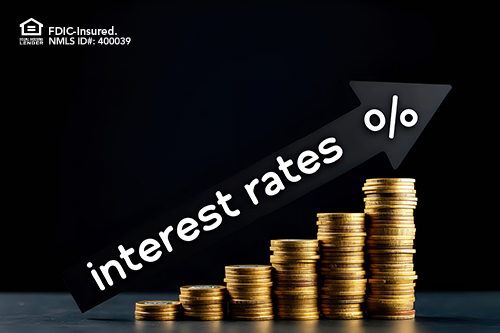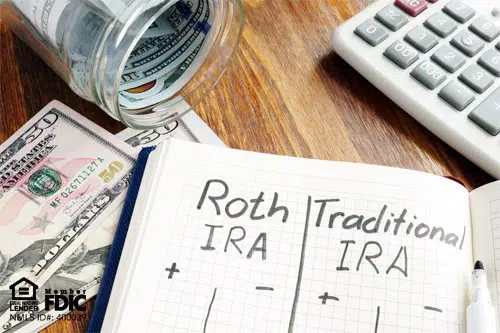If you're looking to invest your savings over a long period, one type of savings account you might consider is a certificate of deposit. Also known as CDs, these accounts are an agreement between you and the financial institution that requires you to set aside a pre-determined amount of money for a set time frame, known as the term. In return, the financial institution will pay you interest on the money. The interest rate you’ll earn varies by financial institution and time frame.
In general, the longer the term, the higher the interest rate on the account. With CDs, your money is technically locked in for the entire duration. If you want to withdraw your money before the term ends, you will likely have to pay a withdrawal fee or forgo some of the interest earned.
Factors That Determine Your Certificate of Deposit Interest Rates
If you have money you won’t need access to for a while, a CD may make sense. These types of savings accounts generally offer the best interest rate on your money. Here are the three key factors that determine what your CD interest rate will be:
- The length of time the financial institution holds your CD. This could be anywhere from a few months to five years or even more. Some people use the laddering technique to access their money more often. Laddering will be explained later in this article.
- Current interest rate environment. Present economic factors affect how much interest a financial institution is willing to pay on your money. Many financial institutions will consider the Federal Reserve's decisions at its meetings regarding changes to the Federal funds rate.
- Expected rate of return. The expected rate of return is the rate your financial institution expects to earn on the money you deposit in the CD account. Your financial institution wants to make a profit on your money, which will cover any interest they pay you.
Paying a penalty for withdrawing your money earlier than the term’s end date can wipe out the benefit of opening a CD. Be sure that you can afford to go without a set sum of money before starting a CD. Other savings account types may be a better option for you.
Laddering Your Certificate of Deposit Accounts
One method people use when setting up several CDs with different end dates on the terms is called laddering. For example, say you have $10,000 to invest in CDs. You decide to break this amount into equal $2,500 installments to put into a CD. You put the first $2,500 into a CD with a twenty-four-month term, the second for a term that is eighteen months, the third for a CD that has a twelve-month term, and the last equal part into a six-month CD.
You may earn different interest rates on each of these accounts because the terms differ. However, you have access to part of your funds more often. This laddering method could help if you have an unexpected expense where you will need money sooner rather than later. It also minimizes the chance that you’ll have to access funds prematurely and forgo the interest earned or pay a withdrawal fee.
Savings Accounts Versus Certificates of Deposit
A CD generally pays a much higher interest rate than a standard savings account. For example, if you have $10,000 available to invest in a savings account or CD, you may earn the following percentages: a bank interest rate of .06%, a Credit Union interest rate of .13%, a Bank CD for 60 months with .87%, and a Credit Union CD for 60 months with 1.6%.
These numbers take into consideration the national averages and are computed monthly. Account fees and inflation are not taken into account in these earnings. Here is the summary of earnings you would approximately obtain through each savings account type withthe interest mentioned above:
- Saving Account, bank - $31
- Savings Account, credit union - $66
- CD account, bank - $445
- CD account, credit union - $833
As shown, your interest earnings will be much higher with a CD account than with traditional savings. NASB has CD accounts that are easy to open and will lock in your rate for the term you choose. Do you have any questions? Feel free to call us today at 800-677-6272.
*Not all products are available for collateral located in all states or for all amounts.




